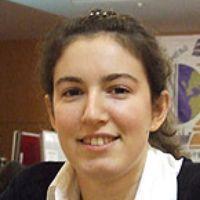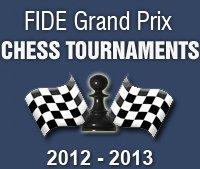
An Interview With Yelena Dembo - Part 2
Part one of this interview can be found here. Q. You are an experienced chess coach. Can you tell us what level of students you train and how you conduct lessons? Do you have a particular pedagogical approach that you think works best? A. My student’s levels range from beginners to 2350 FIDE. But I have such theory, middlegame and endgame collections that even strong IMs and GMs use them! Everyman Chess had published already 2 books of mine on openings and two books I have published myself which are about the middlegame. I think I have my own ways in pedagogics: for example, I work a lot on one’s style. Look for his typical mistakes, have my own “Dembo-rules” that I write a lot about in my 1st book. The top GMs play by these rules but nobody has ever wrote or said about it. Q. Many of the top players learnt to play chess when they were very young. Are those who discover the game at a later age at a significant disadvantage? A. Really, many of the top players learnt to play chess at very little age. And of course, having learnt to play much later creates lots of problems. In any art there are many things which you need to learn only when you are small. Q. You also find time to be a chess journalist and writer. Can you tell us more about your writing and chess books? A. I write for Austrian, German, Hungarian, Russian, Greek and Czech Republik magazines. I have written 4 books – “The Very Unusual Book About Chess”, “Conversation With A Professional Trainer – Methods Of Positional Play”, “Play the Gruenfeld” and “Fighting the Anti-King’s Indians”. The first two were published in Greece and two others in England by Everyman Chess. Now I work on the 5th one – “Dangerous Weapons”: The King’s Indian. I started writing for chess magazines at the age of 15. I analyse and annotate games, write about different tournaments, etc. Q. You competed in the European Individual Chess Championships in Plovdiv. How did you prepare before the event and were you happy with your games and your final result? A. I shared 2nd place and was 7th after tie-breaks, won 13 Elo points & qualified for world championship in 2010, so naturally I am very happy with my result J. Since the event was an open tournament (many players participating and you can’t learn the opponents in advance) you can’t prepare for each opponent, so here the general chess and physical preparation takes place. I wrote in detail how to do such preparation in the second book of mine. Q. Marie Sebag of France played in the men’s section of the European Championships and achieved a score of 6.5/11 to collect her final GM norm to become a (men’s) Grandmaster. How do you feel about her decision not to play in the women’s event? Is there a danger that women-only events are keeping some players from reaching their full potential? A. First of all, since she is in top 10 in the world by rating, she has qualified to play in world championship anyway. Therefore, she doesn’t need to play in women’s European championship trying to qualify. Secondly, of course there was a point in playing in men’s event as she wanted to get her last norm. In women’s championship you can get such a norm only if you win the event which is quite difficult. So, naturally, if any woman wants to get more experience and perhaps an IM or a GM norm she should play in men’s championships. Q. You’re an active member at Chess.com. What attracts you to the website? A. I like to meet new people on different websites and often like to play for fun with any level. The website offers many ways to improve the level, many tournaments, and even live chess! Q. I understand that you have appeared on an Austrian postage stamp. That’s an amazing honour! Can you tell us how that happened? A. In fact it was very simple. I was offered to send my photo which will appear on a stamp. As I understand it was an interesting project which involved some top chess-players from different countries. Q. What interests do you have outside of chess? If you weren’t a chess player what would you be? A. I like to read, to watch different movies, to walk for many hours, do many sports, to talk to interesting people, to work in the gardens (I have 3!), etc. Of course, I would still be a chess-player! Q. If you could invite any 4 people (living or dead, chess players or not) to a fantasy dinner party, who would they be and why? A. Tal, pianist Vladimir Horowitz, writer Mikhail Bulgakov, Louis de Funes! All of them are geniuses and people of art. Q. What ambitions do you have left to fulfil, chess related or otherwise? A. I don’t like to speak about my ambitions, I just do what I can. Q. Where will you be heading next? Do you have any more tournaments coming up soon? A. I have played in a very strong open in Luxembourg, and in Open tournament in Paleochora Crete, where I shared 10th place (there had been 220 players!), my next event is in 1 week (Acropolis tournament) and I still have 3-4 events before the end of this year. Q. If you could give one piece of advice to keen amateur chess players, what would it be? A. I would suggest to find ONE (!) good trainer (not many as lots of people mistakenly think!) and to study all chess! 
